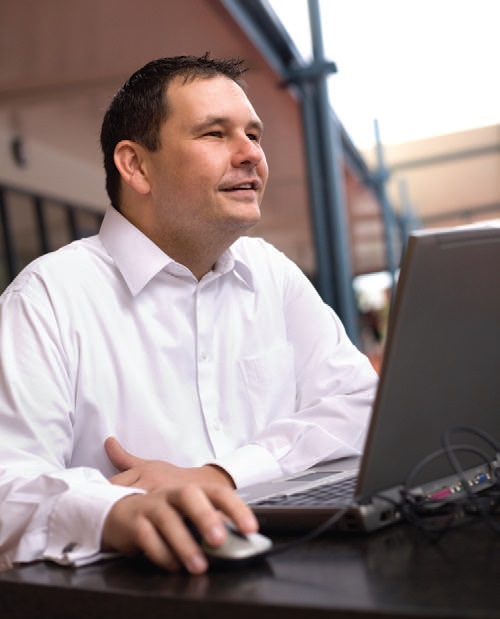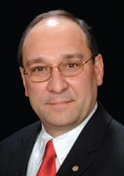The road to CLS
David K. Scheetz | TLT President's Report October 2009
Earning this certification is one of the most difficult things you’ll do in your career—and also one of the most rewarding.

Independent studies have shown that people who have the certification earn more than their CLS-less counterpart.
www.canstockphoto.com
I first heard about STLE’s CLS program when it was introduced in 1993. I was an engineer with Mobil and had just been transferred from the company’s headquarters in Fairfax, Va., to Chicago.
My first reaction to hearing the news was that the CLS, which stands for Certified Lubrication Specialist, would give me an advantage over my competitors and further my technical training. I also realized that preparing for the exam would be a difficult project requiring a major commitment.
But there was one small problem. Passing the CLS test requires a combination of book knowledge and applications experience. Now while I had field experience, at the time I was performing staff functions for Mobil and really wasn’t using it. That meant that in addition to studying I would need to go back and refresh my memory on applications work I had done earlier in my career.
I travel a lot in my job, and for about a month I spent every night in my hotel room plus weekends studying for the exam. Trust me—you can’t bluff your way through this test, which covers 17 different technical areas of lubrication fundamentals.
Was I nervous about taking the exam? Sure! I didn’t want to go back and tell my bosses and co-workers I had failed. In fact, I told very few people that I was even taking the exam. Hey, who needs that kind of pressure?
I took the CLS test at STLE’s 1994 Annual Meeting in Pittsburgh. It was about what I expected—a rigorous three-hour exam that really tests your mettle as a lubrication professional. I thought I had done well, but after three weeks of not hearing back from anyone I started to sweat. Finally, about a week later, I received the good news. Since that day, I have been recertified many times. Once you have the certification, you certainly don’t want to let it lapse.
Having the CLS certification has been an immense help to my career—it’s documented proof of your expertise and helps open doors. How strongly do I believe in it? In 1994 I had 12 sales engineers reporting to me, and I asked all of them to take the exam. When they asked why, I said that having the CLS establishes technical credibility and removes roadblocks in creating business relationships with your customers. In this industry, that’s where it all starts.
Independent studies have shown that people who have the certification earn more than their CLS-less counterparts. I also believe it will help you get a leg up in promotions and advance your career. Most important—you’ll have the tools to do your job better.
Is the CLS for you? While I urge all field people to at least consider it, you have to be realistic about where you are in your career and what you’ve done so far. This test isn’t designed for someone fresh out of school—in fact, one of the requirements for taking the exam is a minimum of three years experience in the field of lubrication.
But STLE’s CLS Certification Committee is wise to maintain such incredibly high standards. By doing so, it has ensured that earning this certification really means something.
Last month TLT published this quote by Winston Churchill: “We make a living by what we get. We make a life by what we give.” If you obtain the CLS, you’ll have the knowledge and skills to give more to your employer and your customers. And isn’t that a way of giving back to this wonderful industry that has given so much to all of us?
 Dave Scheetz, CLS, is an equipment builder engineer for ExxonMobil Lubricants & Specialties. You can reach him at david.k.scheetz@exxonmobil.com
Dave Scheetz, CLS, is an equipment builder engineer for ExxonMobil Lubricants & Specialties. You can reach him at david.k.scheetz@exxonmobil.com.